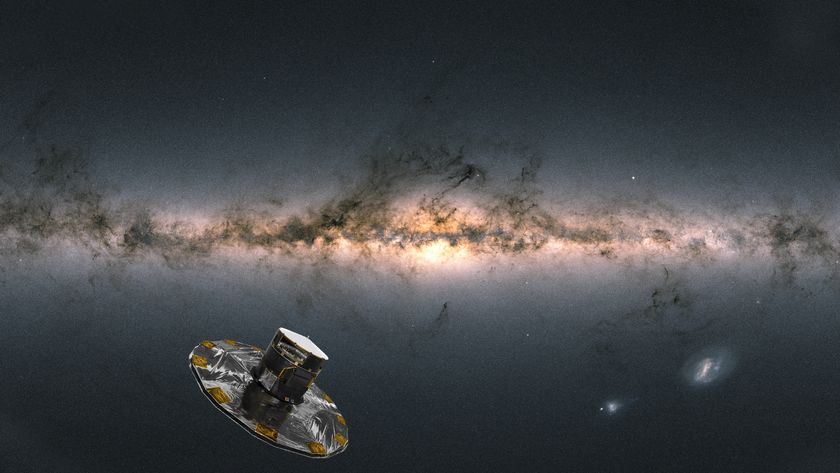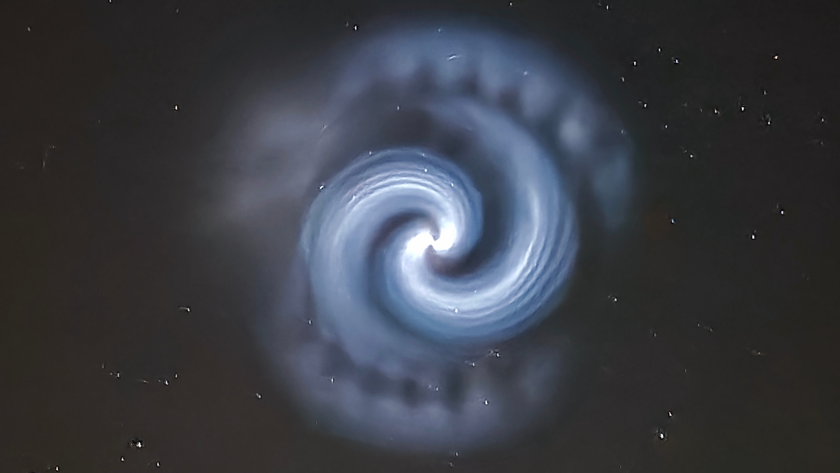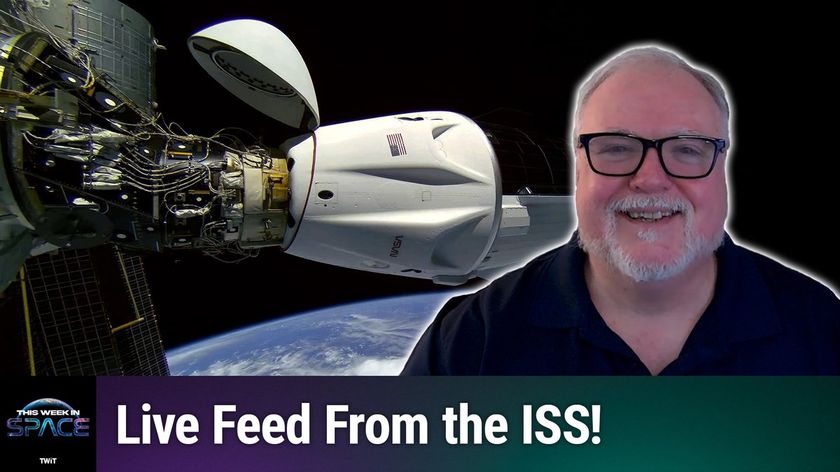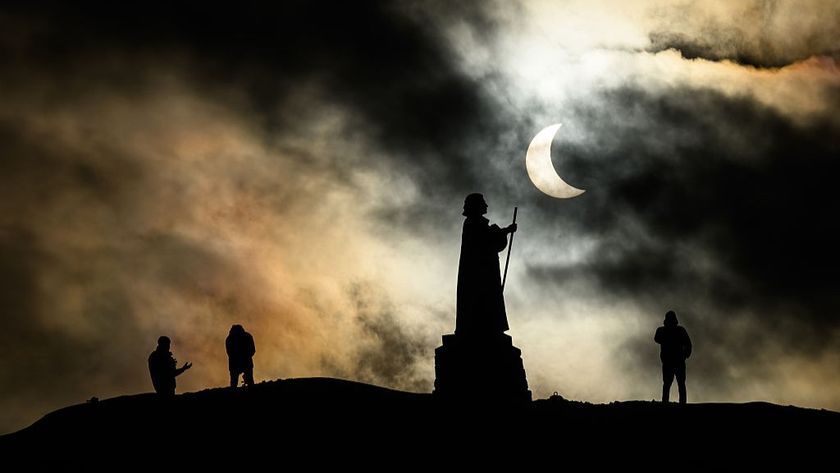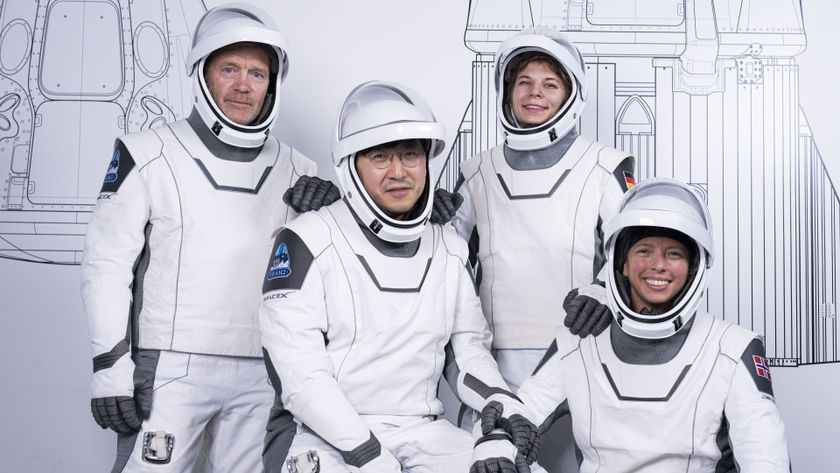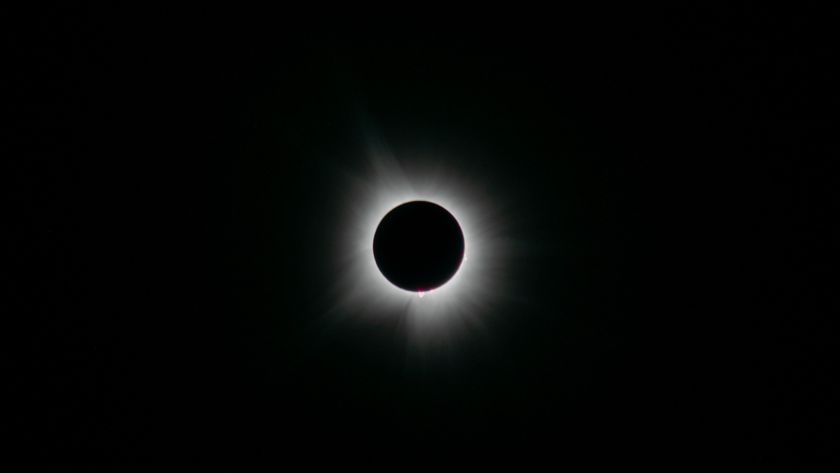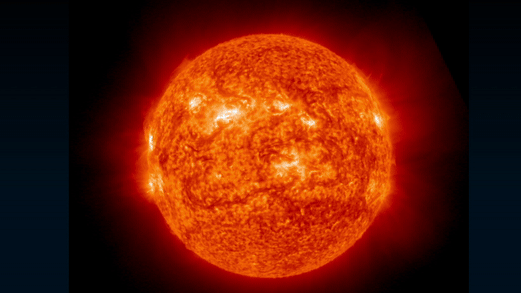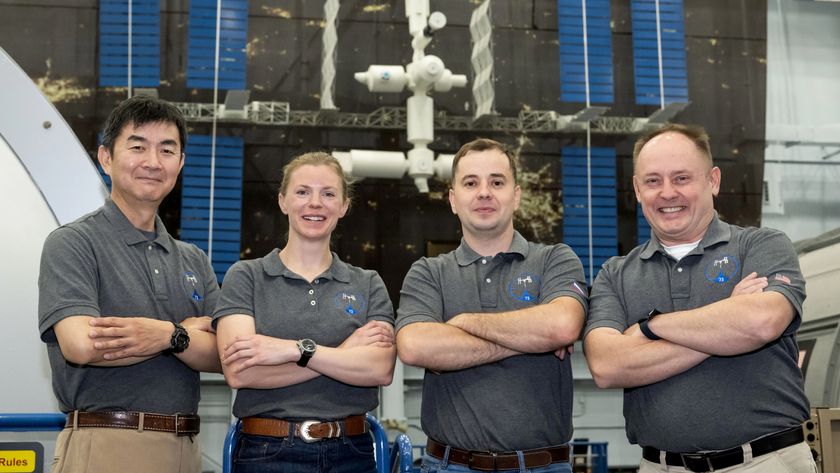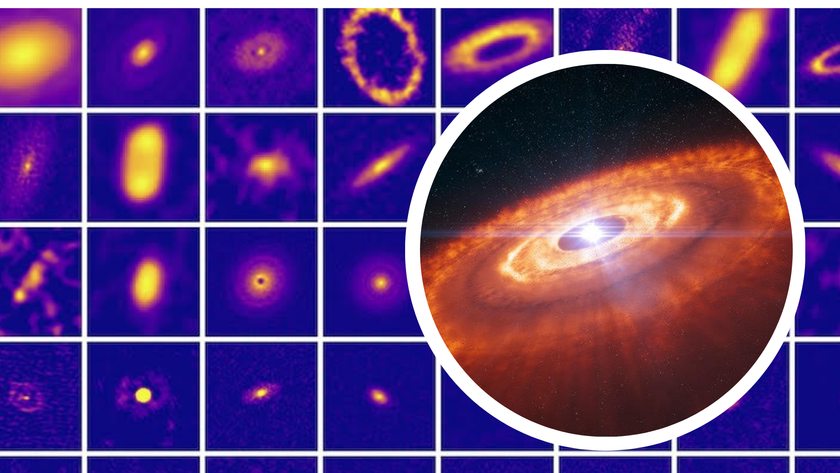Mercury Photos From NASA's Messenger Probe, Part 1: June 2007—March 2011
Mercury's Mysterious Bright Spot
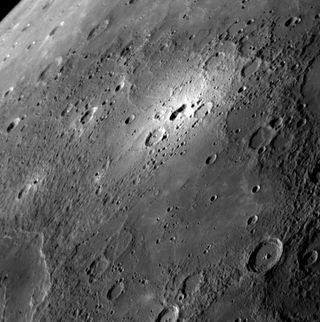
A mysterious bright area on the surface of Mercury is seen near the top center of this 2009 image. The MESSENGER probe also imaged this spot in its second flyby of the planet on Oct. 6, 2008. Color images from MESSENGER's Wide Angle Camera reveal that the irregular depression and bright halo have distinctive color.
As the World Turns: MESSENGER's Home Movie of Earth
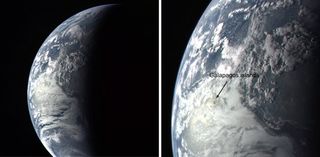
This image, taken while MESSENGER was 34,692 miles (55,831 kilometers) above Earth, shows the Galapagos Islands as tiny specks peeking through clouds. The line dividing day and night cuts through South America, with night about to fall on the western half of the continent. The large bright spot to the west of South America is the Sun’s light scattering off ocean waves.
MESSENGER Flyby of Venus a Dress Rehearsal for Mercury
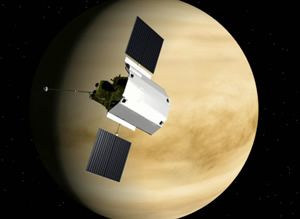
Venus 2 Flyby. As the MESSENGER spacecraft approaches the brightly illuminated Venus on June 5, 2007, it will begin a carefully planned sequence of science observations designed to practice activities planned seven months later at the first flyby of Mercury.
MESSENGER's New View of Mercury
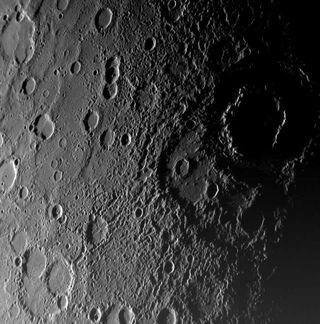
As NASA's MESSENGER spacecraft approached Mercury on January 14, 2008, it captured this view of the planet's rugged, cratered landscape illuminated obliquely by the sun.
Huge Impact Crater on Planet Mercury
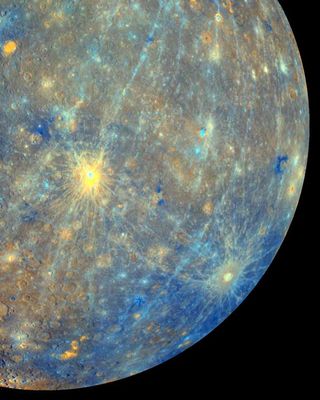
A mosaic of images collected by MESSENGER as it departed Mercury on October 6, 2008. The Wide Angle Camera on MESSENGER imaged the surface through 11 color filters ranging in wavelength from 430 to 1020 nm. This false-color image reflects various wavelengths of light reflecting from the surface.
MESSENGER's Solar System Family Portrait

The MESSENGER spacecraft, which is headed for orbit around Mercury, collected this series of images to complete a "family portrait" of our Solar System as seen from the inside looking out. The majority of this mosaic was obtained on 3 November 2010. Uranus and Neptune remained too faint to detect with even the longest camera exposure time, but their positions are indicated.
Is Mercury the Incredible Shrinking Planet? MESSENGER Spacecraft May Find Out
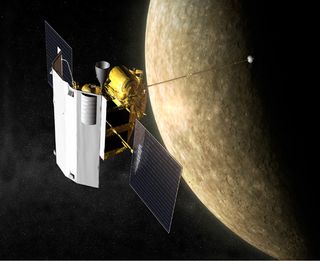
Artist's impression of the MErcury Surface, Space ENvironment, GEochemistry, and Ranging (MESSENGER) spacecraft in orbit at Mercury.
Get the Space.com Newsletter
Breaking space news, the latest updates on rocket launches, skywatching events and more!
One Crater, Many Rays
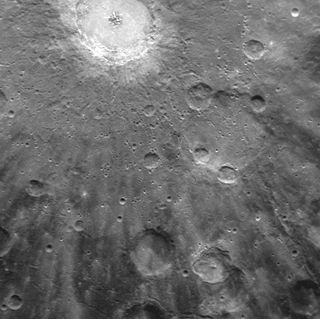
Bright rays spread across this Messenger spacecraft photo and radiate from Debussy crater, located at the top. The March 29, 2011 image shows just a small portion of Debussy's large system of rays in greater detail than ever previously seen. Debussy's rays extend for hundreds of kilometers across Mercury's surface.
First Color Photo of Mercury from Orbit
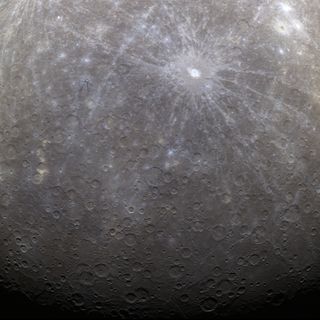
On March 29, 2011, NASA's Messenger spacecraft became the first probe ever to orbit Mercury. This image is the first color photo Mercury, showing the planet's southern polar region, acquired by Messenger from its new orbit. The Messenger probe arrived in orbit around Mercury on March 17 after three previous flybys of the planet.
Mercury's horizon, as seen from orbit by NASA's Messenger spacecraft
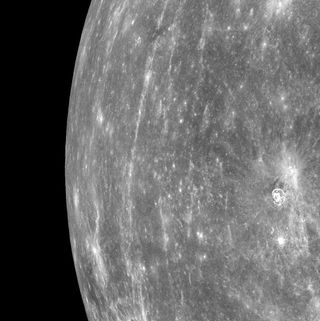
A view of the horizon of Mercury, taken by NASA's Messenger spacecraft on March 29, 2011. The picture shows a stretch of land about 750 miles long, from top to bottom.
Join our Space Forums to keep talking space on the latest missions, night sky and more! And if you have a news tip, correction or comment, let us know at: community@space.com.

Space.com is the premier source of space exploration, innovation and astronomy news, chronicling (and celebrating) humanity's ongoing expansion across the final frontier. Originally founded in 1999, Space.com is, and always has been, the passion of writers and editors who are space fans and also trained journalists. Our current news team consists of Editor-in-Chief Tariq Malik; Editor Hanneke Weitering, Senior Space Writer Mike Wall; Senior Writer Meghan Bartels; Senior Writer Chelsea Gohd, Senior Writer Tereza Pultarova and Staff Writer Alexander Cox, focusing on e-commerce. Senior Producer Steve Spaleta oversees our space videos, with Diana Whitcroft as our Social Media Editor.
